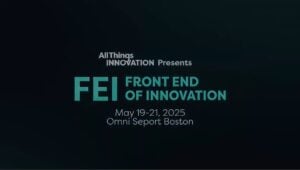Playing for Star Power, not Wins
Take a moment to think about your organization – Are you investing in star power or wins? Do you know what your organization’s “win” is or how your job contributes to it? You would be surprised how many people don’t. Common wins include boosting revenue, improving gross margin, increasing operational efficiency, outperforming competitors, decreasing debt, achieving return on investment, increasing employee or customer engagement, innovation ROI, and many others.
If your organization is playing for star power, you may notice many inefficiencies. Here are some common ones:
- Proliferation of “vanity metrics” such as # features, # reports, # users, and # awards yet lackluster financials.
- Many, small product development activities that never make it to market, siloed departments, proliferation of capabilities or tools that are underutilized.
- Overlapping job descriptions, disengaged employees who have trouble seeing “the big picture.”
All of these inefficiencies ultimately stem from the same root cause — an organization that’s not connected up.
Define Your Win
One way to define your organization’s win is to use objectives and key results (OKRs). In an agile organization, OKRs can help define the win or overall strategic direction of the organization by setting ambitious and measurable objectives that align with the organization’s mission and vision. Clear and measurable OKRs can ensure that everyone is aligned towards the same goal — buying wins, not star power.
OKRs can be cascaded down from top-level objectives to departmental or team objectives, ensuring that everyone knows how their individual contributions will help the organization achieve its overall win. Regular communication and transparency within the organization are essential to ensure everyone is aligned towards the same goal.
From Runs to Wins
To get from runs to wins requires a systemic, not an isolated team or departmental approach: Once OKRs are defined, runs can be converted to wins, by focusing on the right metrics, using data-driven decision making, finding market inefficiencies, and identifying undervalued talent.
- Metrics: Leaders should align their metrics to OKRs that drive business outcomes, such as revenue or innovation ROI, not vanity metrics to show “activity” without business consequence.
- Data-driven decision making: Leaders can use data to understand customer needs, behavior, and preferences, making informed decisions about product development and marketing strategies.
- Market inefficiencies: Managers can look for market inefficiencies, such as gaps in the market or unmet customer needs, that can be addressed through innovation. By identifying these inefficiencies, managers can develop products or services that better meet customer needs and create a competitive advantage in the market.
- Undervalued talent: Leaders should also look for employees with unique skill sets or innovative ideas that can contribute to the organization’s success. By recognizing and empowering these individuals, managers can foster a culture of innovation and create a competitive advantage.
In conclusion, buying wins means buying runs, and organizations need to ensure that everyone is aligned towards the same win. This starts with defining what the win is and cascading it down to individual contributions through clear and measurable OKRs. By fostering a culture of openness and collaboration and regularly tracking progress towards objectives, organizations can optimize their resources and achieve better results – just like in Moneyball. Don’t play for star power, play to win.
Contributor
-

Gail Martino, Ph.D is a thought leader and global innovation leader in the fast-moving consumer goods industry, having worked with billion-dollar brands at Unilever and previously at Gillette. With a background spanning both corporate and academic roles, Gail has a proven track record in developing and executing highly effective innovation ecosystems, driving value through strategic partnerships and internal product development. Notably, she has been a valued member of the advisory board for the Front End of Innovation conference since 2015.
View all posts























































































































































































